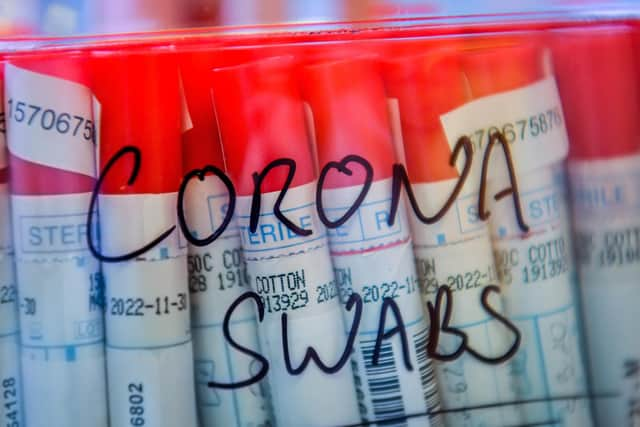Coronavirus support database set up to coordinate volunteer community efforts in Northumberland
and live on Freeview channel 276
Earlier this week, we reported about the launch of groups in Alnwick and Berwick in a bid to recruit volunteers to support the most vulnerable people and those who are in isolation, unable to get out to shop or pick up prescriptions and medicines, for example.
And similar groups are being set up in communities large and small across the county, as people try to get to grips with the changes in lifestyle needed to prevent the spread of COVID-19.


Advertisement
Hide AdAdvertisement
Hide AdNorthumberland Community Voluntary Action (Northumberland CVA) is working with Northumberland County Council to identify where support is available and has created an online spreadsheet to collate all this information.
The database, which can be found at https://tinyurl.com/yx2p35wq, features the details of existing organisations, new mutual aid groups, food banks and businesses offering food delivery, health and wellbeing provision, and others.
If anyone has information to add, they can contact Marc Johnson, from Northumberland CVA, on [email protected] or 01670 858 688.
However, Mr Johnson also urged caution in relation to the new groups springing up across the county.
Advertisement
Hide AdAdvertisement
Hide Ad“We do have some safeguarding concerns with regard to local support groups where volunteers may not have undergone any checks for working with vulnerable people and ask people to be cautious,” he said.
“Only use people you know and trust wherever possible, do not let unfamiliar people into your home and do not give out bank details/cards or large amounts of cash.
“Our advice is to think local first. Check up on the people in your village/street/estate who might need a hand.
“If you are worried about a child or adult’s welfare in Northumberland, contact Onecall on 01670 536 400.”
Advertisement
Hide AdAdvertisement
Hide AdMeanwhile, the Local Government Association (LGA) has warned that elderly and vulnerable residents self-isolating are at risk of being exploited by strangers and cold-callers posing as helpful neighbours in order to scam them.
The National Fraud Intelligence Bureau has already identified dozens of reports of coronavirus-related fraud in which the victims have lost a total of £800,000.
The LGA says that while the vast majority of concerned residents offering to help the elderly and vulnerable in their neighbourhood are genuine, well-wishers will have the most impact by turning their focus to helping their immediate neighbours or neighbours they already know, making donations to food banks, or appealing to established services in their councils, the NHS or local charities.
The Association recommends that anyone who is stuck without food or medical supplies, or is lonely as a result of their self-isolation and does not have any friends and family or neighbours that they know in the area, should in the first instance contact their council.
Advertisement
Hide AdAdvertisement
Hide AdCoun Simon Blackburn, chairman of the LGA’s Safer & Stronger Communities Board, said: “By tricking elderly and vulnerable people in self-isolation to part with their cash, fraudsters are playing roulette with the lives of those most at risk.
“Keeping the elderly and those with underlying health conditions safe is every councils’ top priority and councils will do everything in their power to prosecute fraudsters and seek the toughest penalties for criminals taking advantage in this despicable way.
“Councils have plans in place for dealing with the very challenging circumstances presented by the coronavirus and will continue to review how best to use their staff and mobilise community resources to ensure that the elderly and vulnerable are given the support they need.”